FORT BENNING, Ga. - Being an NCO is not just about training for the war fight, it's also about mentoring Soldiers. The Henry Caro NCO Academy's Advanced Leader Course not only prepares Soldiers to serve as Infantry squad and section leaders, but is also now teaching skills to help get Soldiers promoted and write winning evaluations.
"It's a proven fact, you are influenced by the NCOs you had ahead of you," said retired Sgt. 1st Class William Douglas, a course instructor.
The course recently underwent change, he said, revamping machine-gun training, adding more testing and piloting a class on the Army writing style. The course is designed to reiterate what Soldiers already know and also adds a level of stress to study and prepare, Douglas said.
The four-week course emphasizes war-fighting skills, combat leadership and planning and conducting squad-level training. Because many ALC students work outside of their primary job specialty for extended periods of time - resulting in skill decay - the course also touches on traditional Soldier skills such as land navigation. All graduates become Combatives Level 1 certified.
"A lot of Infantry skills are perishable skills. If you don't do it, you forget it ... it's not like riding a bike," said Staff Sgt. Robbie Petry, an ALC student. "A lot of things I had a broad spectrum of knowledge on and the course just fine-tuned things."
A two-time combat veteran, Petry is an instructor with A Company, 1st Battalion (Airborne), 507th Parachute Infantry Regiment.
Petry said the most valuable portion of the course for him was "the range time and going over tactics, because it's not something I do everyday like I used to when I was in an Infantry unit."
The students were at Patton Range Friday receiving refresher training on the MK19 grenade launcher and .50-caliber machine gun.
The course used to devote three days to shooting the M4 rifle and one day for machine-gun training. Now, rifle training is gone and the students spend four days shooting the .50-caliber machine gun, grenade launcher and the M240. Students receive a machine gunner's certificate, another new addition.
Staff Sgt. Steve Floerchinger said the range time helped him brush up on his skills.
"Doing little things like adjusting the timing and headspace on the machine gun, you will forget how to do a step if you haven't done it in a while," said Floerchinger, who will report to the 5th Ranger Training Battalion in Dahlonega, Ga., to become a Ranger School instructor following graduation.
The students in the current class are the first to receive the pilot class on the Army writing style and feedback will be used to expand the course in the future.
"We are a country at war and we found that NCOs are really good at kicking down doors ... but they're not as good at writing NCOERs and awards. Soldiers are having problems once they redeploy - drinking, financial problems, family issues - and their NCOs don't know how to help them," said the course instructor.
The class goes over writing NCO Evaluation Reports, Uniform Code of Military Justice actions, awards and counseling statements. As part of the writing requirement, students also complete a two-page essay on a battle of their choice between World War II and the present.
It can help NCOs with getting their Soldiers promoted, teach them the process involved when a Soldier is separated from the military and show them how to write a great NCOER "without copy, paste," Douglas said.
Douglas said this portion of the course is critical in developing mentors and better leaders.
"The main part of being an NCO is not just to train to fight, it's also to mentor your Soldiers. If you're a good NCO and you have good Soldiers under you, chances are greater that they will come up through the ranks."
The class graduates Friday.
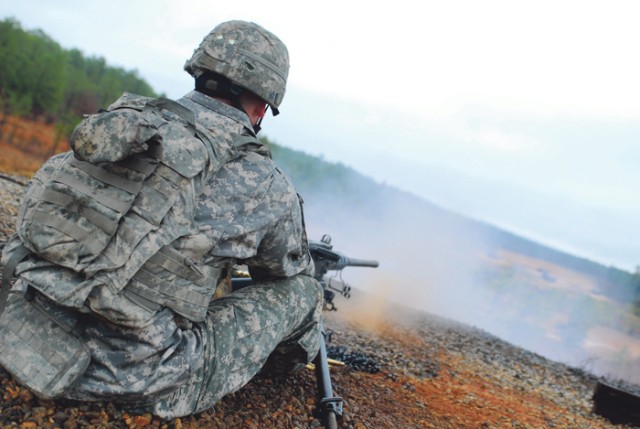
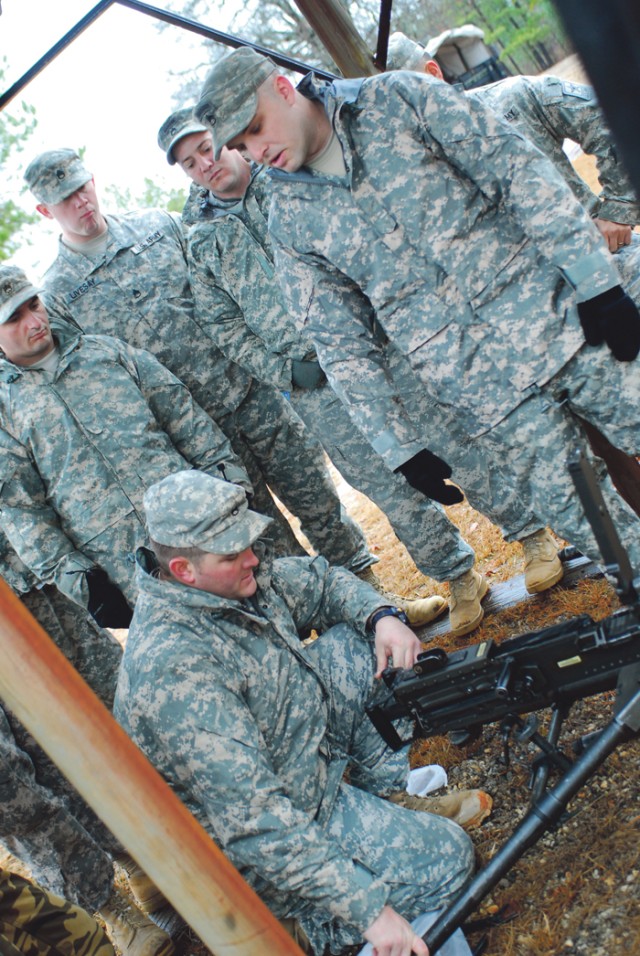
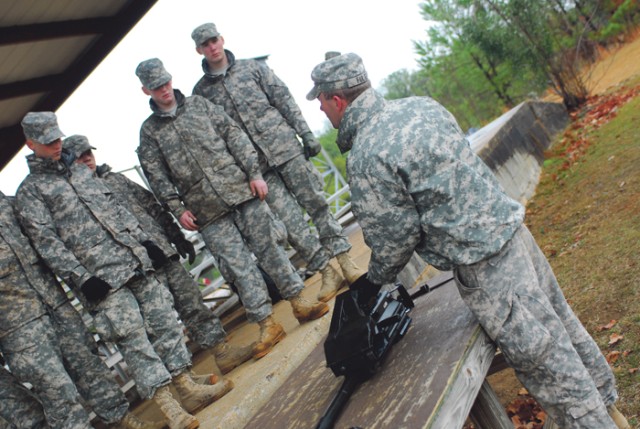
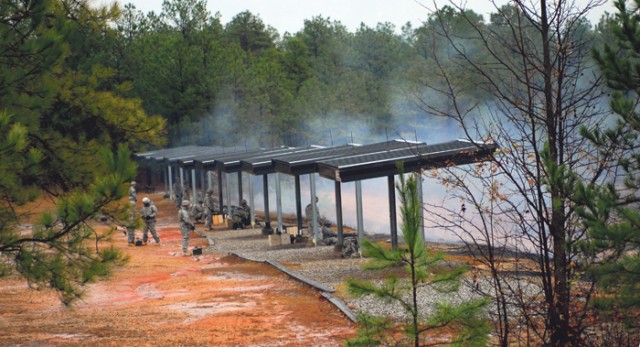
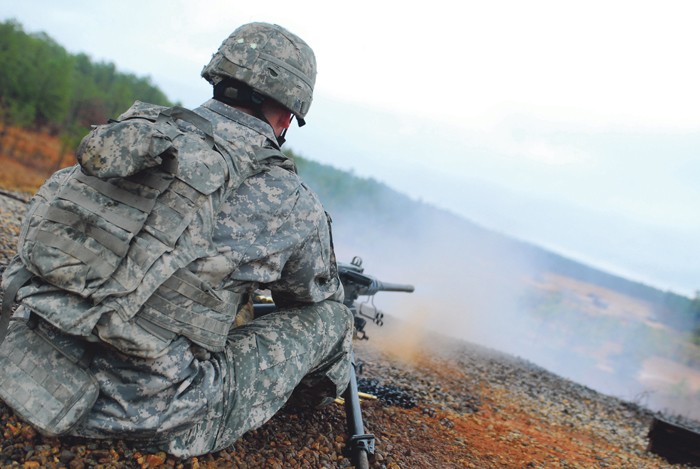
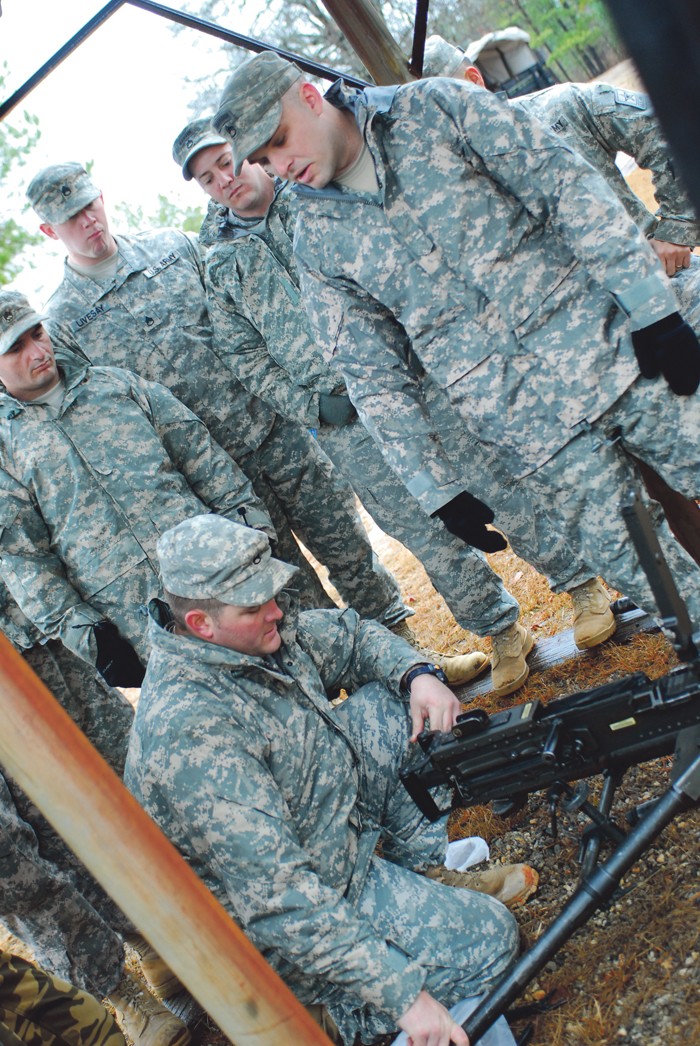
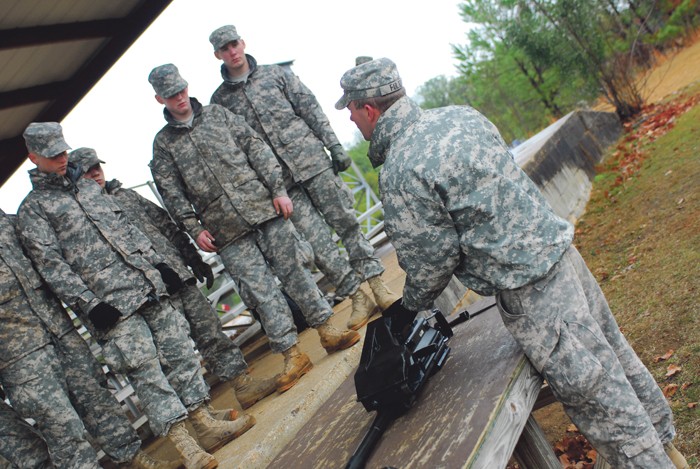
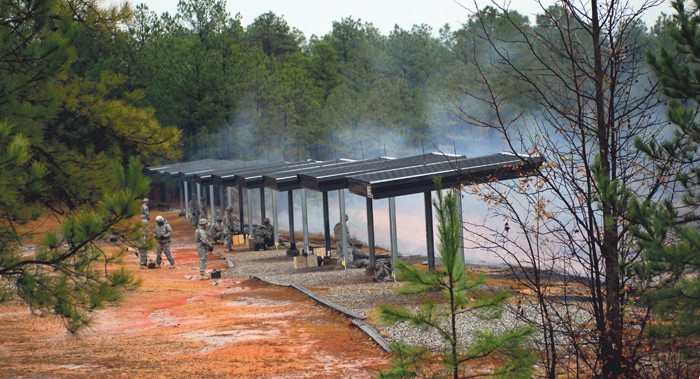
Social Sharing